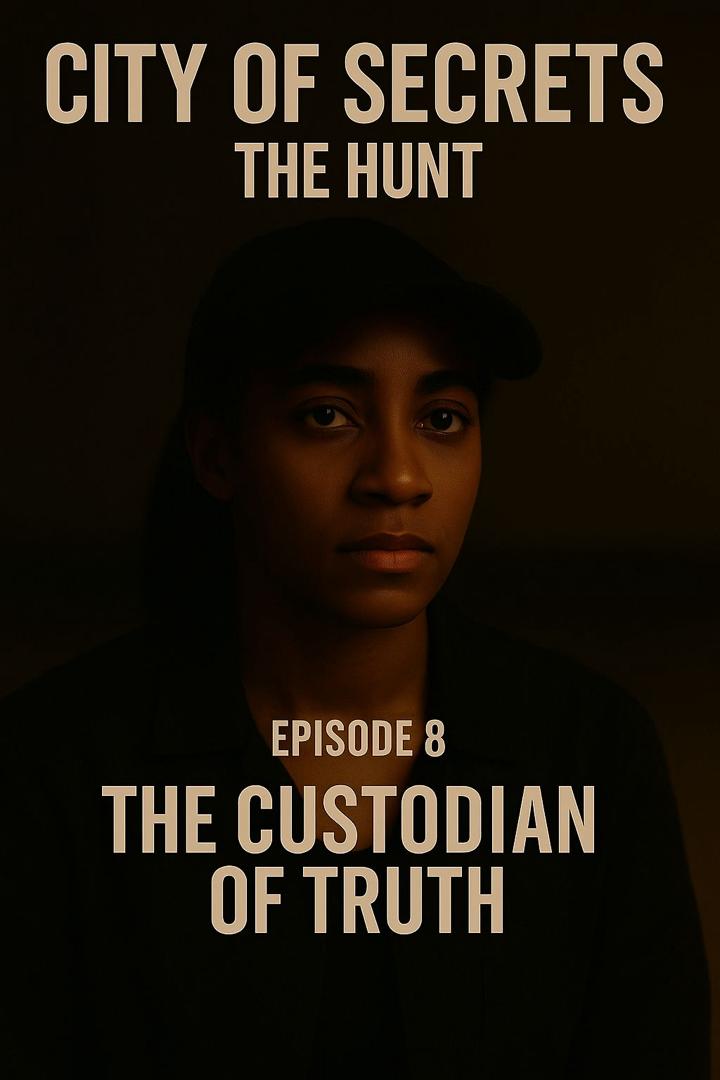
Mobola Johnson
Zainab did not stop running until her lungs stung and the sirens melted into the night. The alley spat her into a forgotten part of Ibadan where streetlights buzzed like dying insects. There, a tall man stepped from the shadows.
“I was told you might need help,” he said.
Zainab froze. “The Custodian?”
He nodded. His face was rough, his eyes disciplined. The type of man who walked through history without leaving fingerprints.
“Your mother is safe,” he said. “Your aunt tried to warn you. She paid for it.”
Zainab steadied herself. “And my father?”
“The bravest coward I ever knew,” the Custodian said without apology. “He helped build Babel. Then he tried to destroy it. He died to protect you.”
Zainab inhaled sharply. It was not comfort, but clarity.
“And Adewale?” she asked. “My uncle?”
The Custodian’s jaw clenched. “He kept the fires burning after the generals left the stage. He wants control. Not power. There is a difference.”
Before she could respond, two figures stumbled toward them from opposite ends of the alley.
Musa. Limping, blood soaked into his shirt.
Amir. Pale, furious, alive.
They had survived the burning bar, but only barely.
“Good,” the Custodian said. “We will need all of you.”
“Need us for what?” Zainab asked.
Amir pulled a device from his coat. Not a gun. Something smaller. Deadlier. “This can shut down Babel. Permanently. Every network. Every signal. Every last manipulative whisper.”
Musa added, “But it will expose everything: names, accounts, chains of command. Both the living and the already buried.”
“And Nigeria burns?” Zainab asked.
The Custodian answered quietly, “Or finally wakes up.”
A black Toyota rolled silently into view. Only one man stepped out.
Adewale Adebayo.
Her uncle.
His voice filled the alley. “You were never supposed to carry this burden, Zainab.”
“You killed my father,” she said.
“No,” he replied. “Your father killed himself the moment he chose the world over his family.”
Zainab stepped forward. She did not shake. “He chose what was right.”
Adewale looked at Amir. “Give me the device. You all walk away.”
Amir glanced at Zainab. He had been many things, but here he was letting someone else choose the fate of nations.
For a heartbeat, the world went silent.
Zainab thought of her father humming as he carried her on his shoulders. She thought of Aunt Dupe’s diary. She thought of her own byline exposing nightmares disguised as governance.
She looked at her uncle and said:
“No.”
Amir pressed the trigger.
The city went dark.
No signal. No broadcast. No tracking. For the first time in decades, Nigeria went silent without permission.
Adewale lunged, but the Custodian moved faster. They wrestled. A shot. A grunt. Adewale fell, clutching a leg wound. Not dead. Not victorious.
The Custodian tied him with a mechanic’s cable. “Let the truth judge him now.”
Musa supported Amir before he collapsed. The shutdown had taken everything from him.
And Zainab stood in the quiet that truth creates after it detonates.
Sirens began to rise in the distance, confused, leaderless.
“You just ended Babel,” the Custodian said. “Now you must write what replaces it.”
Zainab looked up at the night. No drones. No silent watchers. No programmed frequencies in the air.
Freedom was loud in its silence.
She turned to the others. “We go public. We tell everything. My father deserves a final word.”
Musa smiled despite the blood. “He would be proud.”
Zainab did not smile back. “He would expect me not to fail.”
The first rays of morning stretched over Ibadan as they walked away together — survivors of a truth the nation had tried to bury.
This was not a happily ever after.
But it was a beginning.
A city awakened.
A system broken.
A secret no longer silent.
The end of Babel.
The start of accountability.
The End
Mobola Johnson brings her creative writing skills and storytelling experience to bear in shaping the society with significant narratives.
